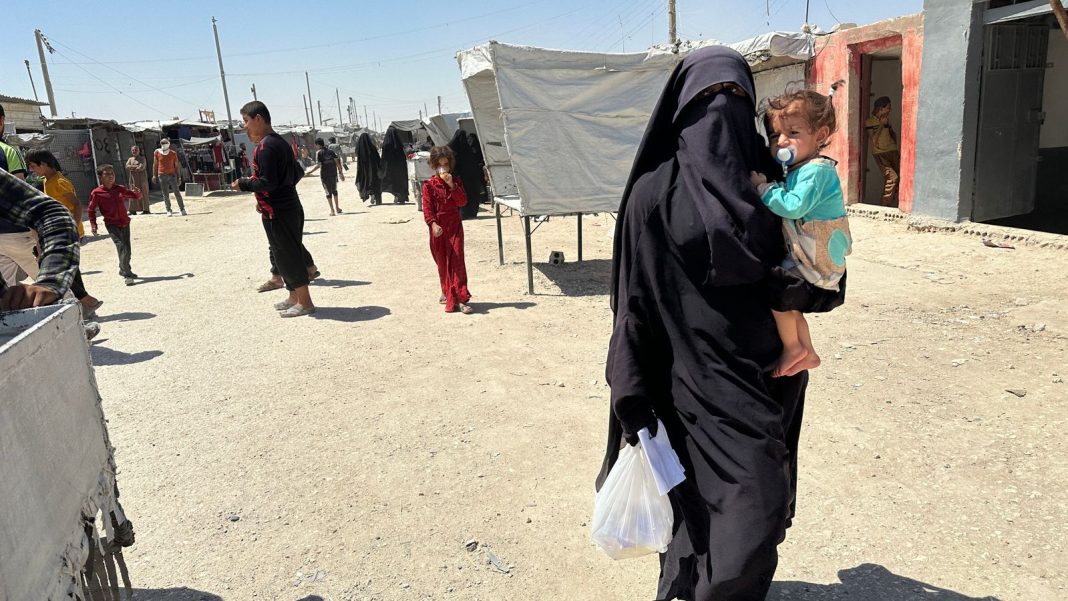The two sprawling camps overcrowded with Islamic State families in northeast Syria, where Shamima Begum has been confined for most of the last five years or so, are a continual security challenge.
Tens of thousands of people still live in the camps, years after the fall of the terror group and the dismantling of its so-called caliphate.
But the Syrian Democratic Forces (SDF) who guard it have warned that unless they’re given international help to maintain security in this increasingly unstable region, the extremist organisation will rise again.
Living conditions are basic in the camps
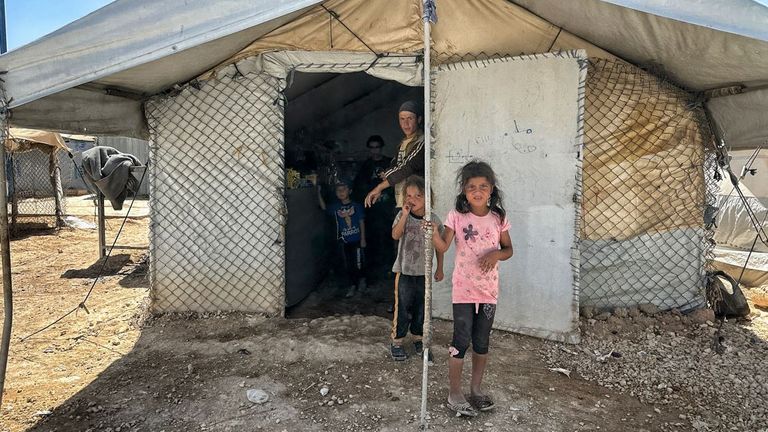
Some 60% of the population are children
Siamand Ali, who is a commander in the SDF and goes under the nom de guerre of Mervan, told us: “The IS prisons and camps have become a way in which IS (also known as Daesh) can re-establish themselves and in the camps you’ve got a whole generation trained in IS ideology, methods and way of life – it’s a ticking time bomb which can explode anytime.”
This is where Ms Begum, the schoolgirl from Bethnal Green who ran away to join IS when she was aged just 15, has been living and surviving for the past few years – along with an estimated forty thousand other foreign nationals in the camps and IS prisons in northeast Syria.
The two camps – Al Roj and Al Hol – are heavily guarded and the living conditions are basic, with most of the residents housed in rudimentary tents.
Human rights groups have long argued they are arbitrarily detained, without trial in dangerous conditions.
Some 60% of the population are children who have no access to proper schooling or good healthcare.
Many are born out of forced marriages or rape, but according to the Kurdish authorities are steeped in IS ideology, and vulnerable to radicalisation.
On our recent visits, it did not take long for the children to throw rocks at us and at the camp guards escorting us.
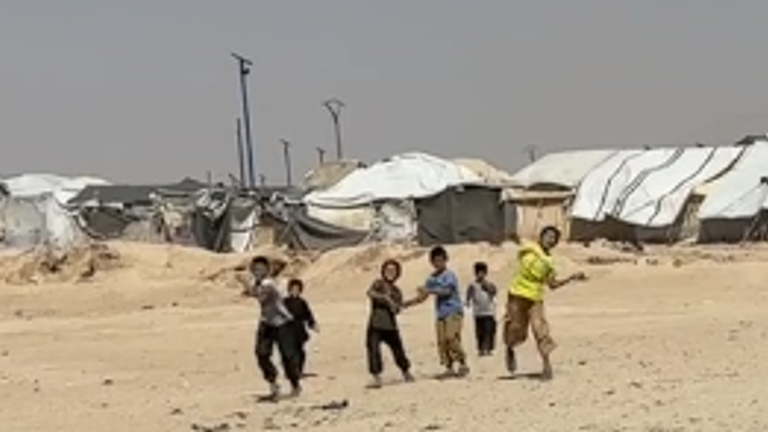
Children throw stones at the Sky News team and their camp escort
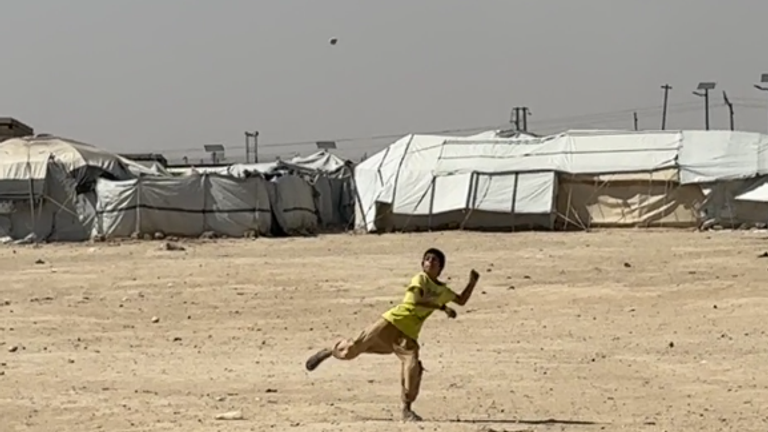
It was difficult to find anyone who’d talk to us, with some women running away at the sight of Westerners or simply refusing to engage.
One of the women who did talk said she did not feel safe in the camp, “not even 10% safe”.
“We are scared for ourselves, and for our children and there are no medical facilities,” she told us.
In several days of raids in Al Hol camp a few weeks ago, the security forces found small tunnels and dugouts stashed with weapons, including AK-47 assault rifles, rocket propelled grenades and makeshift bombs.
They arrested a few dozen people accused of being IS agitators, recruiters or smugglers – individuals suspected of forming sleeper cells and creating a terror network in the camp.
They’ll now be detained in one of the many prisons also packed full of IS.
To those running the camps, IS has never gone away.
Read more:
Shamima Begum loses UK citizenship appeal
IS bride insists she ‘didn’t hate Britain’
The problem with Shamima Begum’s case
Just two months ago, another raid at Al Hol led to the killing of a man accused of being a senior IS leader known as Abu Ubaida al Iraqi.
The SDF media centre said the man, also known as Abu Muawiyah, was involved in the killing of many women and men in the camp.
In addition, he was accused of attempting to smuggle children out of the camp to the Turkish-controlled areas of Syria with the intention of them becoming “cubs of the caliphate”.
And the SDF believe he was behind multiple attacks on security and military checkpoints, as well as calls to attack humanitarian and European working delivering aid to the camp.
Both he and his wife were said to have been killed while refusing to surrender.
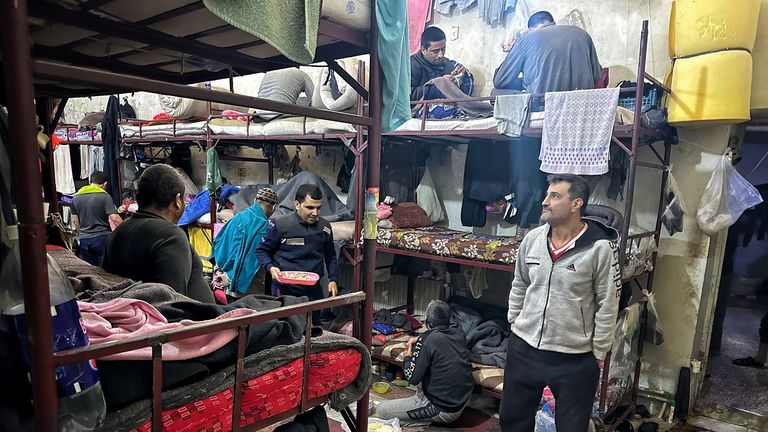
The prisons are packed with IS militants
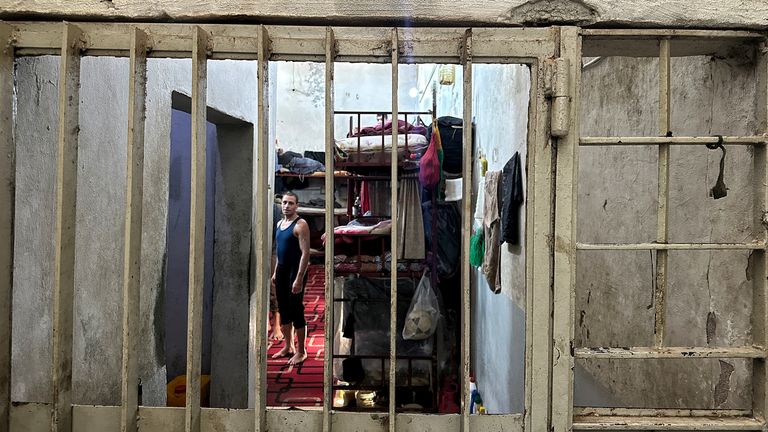
The whole of northeast Syria has become increasingly unstable due to multiple factors, which has heightened the need for more secure long term arrangements for the tens of thousands of IS being held here.
The Syrian Kurds and the Kurdish YPG militia have controlled this autonomous region within the Syrian state since the 2014 battle against IS.
The YPG formed the bulk of the SDF which partnered with a large US-led coalition, including UK and France, to defeat IS.
But the YPG is allied with the Turkish Kurdish group known as the PKK – and this is viewed by Turkey as a terrorist organisation.
Consequently, when the Syrian Kurds seized and held on to territory during the IS battles, Turkey became increasingly exercised.
In the aftermath of the IS defeat, there have been regular and increasing Turkish attacks on infrastructure, SDF bases, troops and commanders.
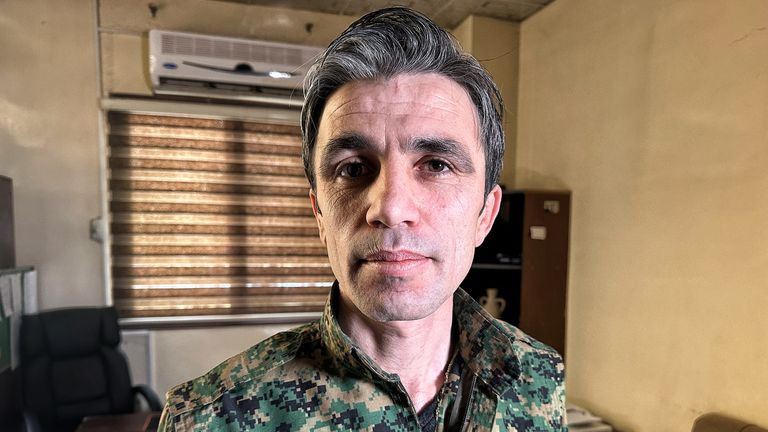
SDF commander Siamand Ali has called for international help
The SDF also faces mounting attacks from Iranian-backed militia supporting the Syrian regime headed by Bashar al Assad.
And there has been worrying unrest with some Arab tribes in the Deir Ezzor region – who joined forces with the SDF to fight IS – rebelling and claiming they’re not being given a fair share of revenues from the rich oil fields there.
It forms a complex, volatile background against which those charged with running the overcrowded IS camps and prisons are having to operate.
SDF commander Siamand Ali said: “The British government, the French, the Arab countries are all not fulfilling their responsibilities to their citizens.
“These IS here are a heavy burden on us and they need to find a solution, either repatriate their citizens or help us establish a tribunal so we can hold them to account here.”
:: Alex Crawford reports from northeast Syria with cameraman Jake Britton, specialist producer Chris Cunningham, producer Farhad Fatay and Fazel Hawramy.


